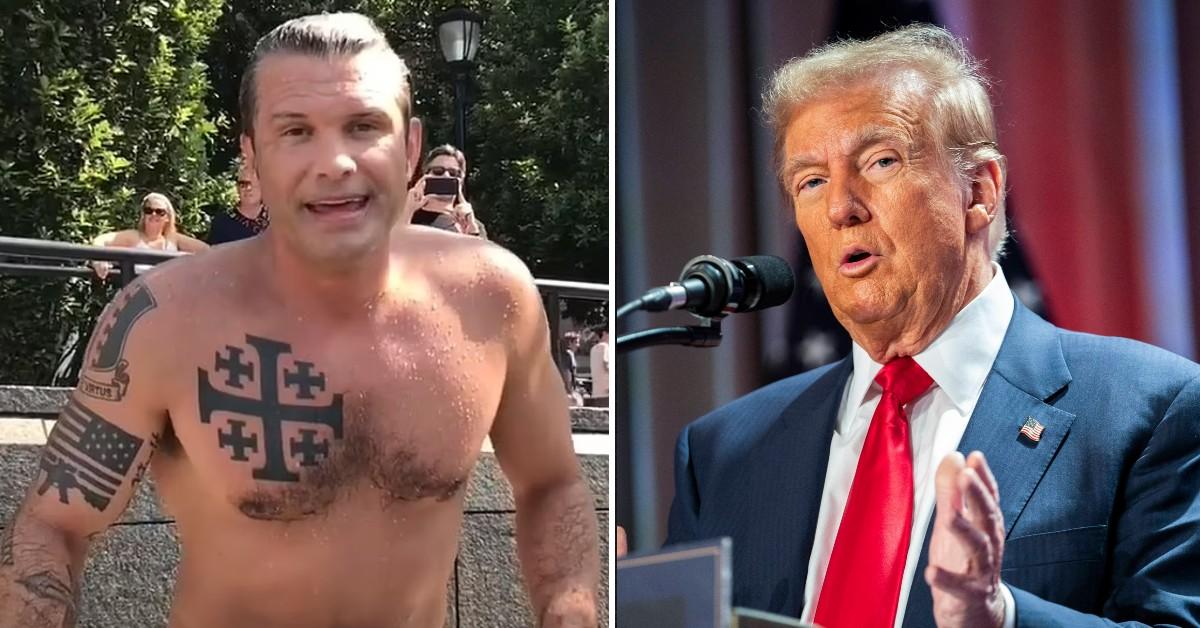News
Pentagon Criticizes Trump’s Selection of Fox Host Pete Hegseth as Secretary of Defense

Trump’s Controversial Secretary of Defense Pick: Pete Hegseth’s Tattoos Unveiled
By: Haley Gunn Nov. 13, 2024, Published at 8:20 p.m. ET
The backlash surrounding Donald Trump’s eyebrow-raising choice for Secretary of Defense has led to a closer examination of Pete Hegseth, his nominee, particularly his striking tattoos. Hegseth, a former Army National Guard veteran with service in Afghanistan and Iraq—where he earned two Bronze Stars—also serves as a host of Fox & Friends, a role he has held since 2017.
With over a dozen tattoos adorning his chest and arm, one prominent ink piece reads “We the People” etched on his forearm. Interestingly, Hegseth only began tattooing later in life, having been dissuaded by his father during his youth. This newfound penchant for body art has stirred controversy, particularly during his military tenure.
In 2021, while deployed with the Minnesota National Guard to protect the inauguration of Joe Biden, Hegseth found himself ordered to stand down, reportedly due to his Jerusalem cross tattoo. The tattoo, which covers a significant portion of his right chest, features a bold black cross along with smaller crosses, symbolizing his faith. However, this symbol has recently garnered mixed interpretations, especially when linked to the belief of Christian nationalism.
Hegseth claimed he was labeled an “extremist” because of this body art, which he vividly defended, stating that the Jerusalem cross is a historical emblem originating from the Crusades era. Despite Hegseth’s assertion that his tattoos represent his faith, military devotion, and patriotism, some ink choices raise eyebrows.
One notable tattoo gracing his right bicep showcases the phrase “Deus Vult,” meaning “God wills it,” which originated as a battle cry during the First Crusades yet has since been appropriated by certain far-right factions. Additionally, Hegseth features the iconic snake design from Benjamin Franklin’s “Join or Die” political illustration, evoking unity among the American colonies during their fight against colonial powers.
His tattoo collection also includes “We the People,” “1775,” and a cross emblazoned with a sword, drawing inspiration from the biblical verse Matthew 10:34, which reads: “Do not suppose that I have come to bring peace to the earth. I did not come to bring peace, but a sword.” Hegseth admitted this was his first tattoo, chosen impulsively while on a family vacation.
In the wake of Trump’s announcement, Pentagon officials expressed disbelief and frustration. Eric Edelman, a veteran Pentagon policy advisor from the Bush administration, commented on the appointment, emphasizing Trump’s preference for loyalty over credentials. One anonymous defense industry lobbyist struck a particularly harsh tone, questioning Hegseth’s qualifications and expressing hope for a nominee with a robust defense background instead.
With all eyes on the unfolding situation, the appointment raises fundamental questions about the intersection of personal beliefs, military integrity, and political appointments. As the controversy unfolds, Hegseth’s tattoos continue to be a focal point in a broader discussion surrounding Trump’s administration and its implications for the Department of Defense.
